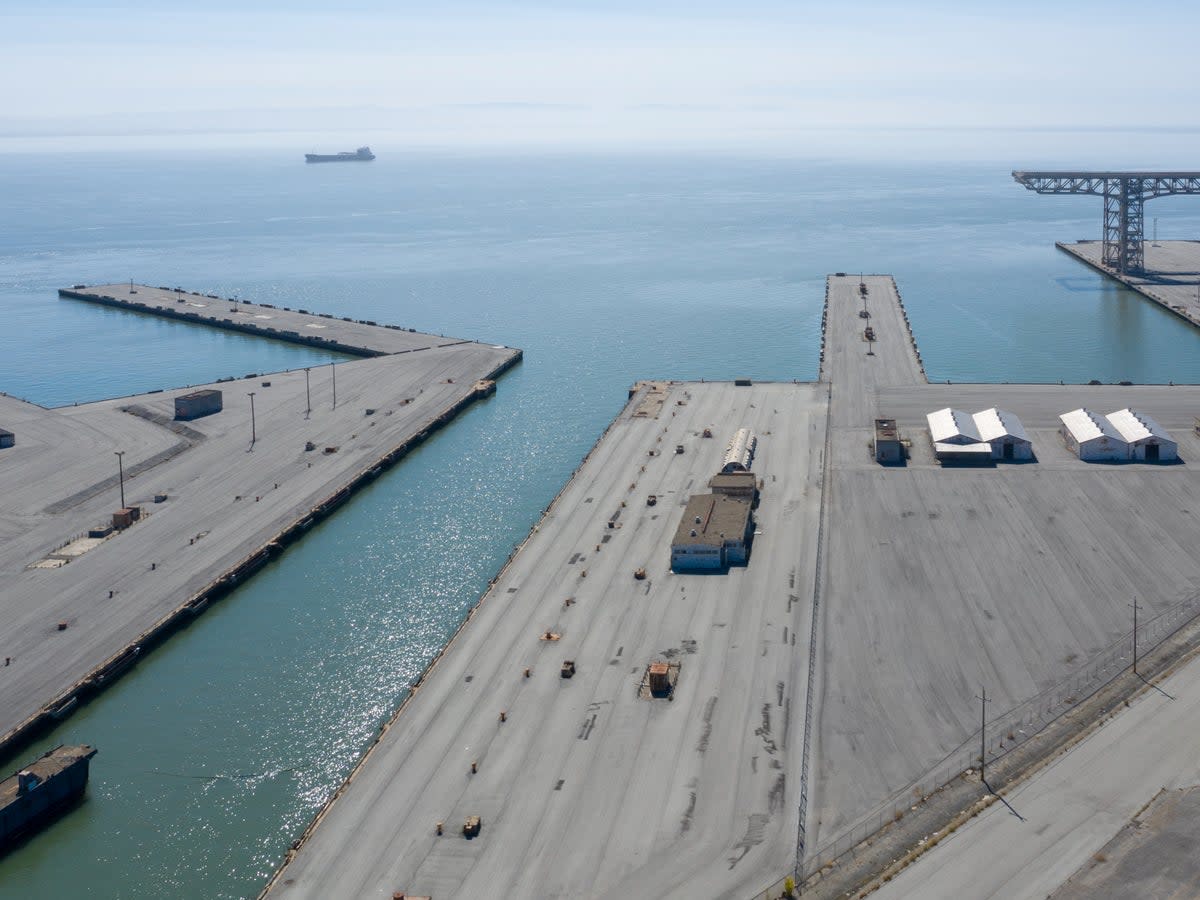Navy faces lawsuit over stalled $1.2bn clean-up of San Francisco shipyard filled with radioactive waste

The US Navy and the Environmental Protection Agency are failing to properly oversee the removal of radioactive waste from a massive San Francisco shipyard, an environmental group alleged in a federal lawsuit filed on Friday.
Greenaction for Health and Environmental Justice accuses the service branch and agency of “egregious” violations of federal laws like the Comprehensive Environmental Response, Compensation, and Liability Act in their handling of remediation efforts at the San Francisco Shipyard, formerly known as Hunters Point Naval Shipyard.
During the 1950s, ships used in atomic weapons testing were decontaminated at the San Francisco docks, contaminating parts of the facility with radioactive waste.
Since then, the suit alleges, the Navy has missed deadlines under federal law to review progress on the $1.2bn cleanup effort, and the EPA has failed to enforce an agreement between the state of California and the Navy regarding the remediation effort.
In particular, the suit claims that the Navy failed to honor a 2018 agreement to retest previously contaminated areas if further radioactivity issues were discovered in the wake of two supervisors at clean-up contractor Tetra Tech EC pleading guilty that year to falsifying records.
Since then, the Navy has admitted that multiple samples have revealed radioactive waste in the form of old deck markers from ships and contaminated glass chips.
The EPA and the Navy do not comment on pending litigation.
The shipyard sits near a historically Black neighborhood. It is part of the future site of a sprawling 693-acre redevelopment project, among the housing-strapped city’s most ambitious in a generation, to turn the area and nearby Candlestick Point into a bustling neighborhood of more than 10,000 housing units, pending the decontamination effort.
“The Navy should acknowledge that and get on with it,” Steve Castleman, of the Environmental Law Clinic at UC Berkeley Law, who is representing the activist group, told KQED. “The agencies are in no hurry to move to 100% of the testing, and we don’t believe they will ever do 100% testing without a court order.”

